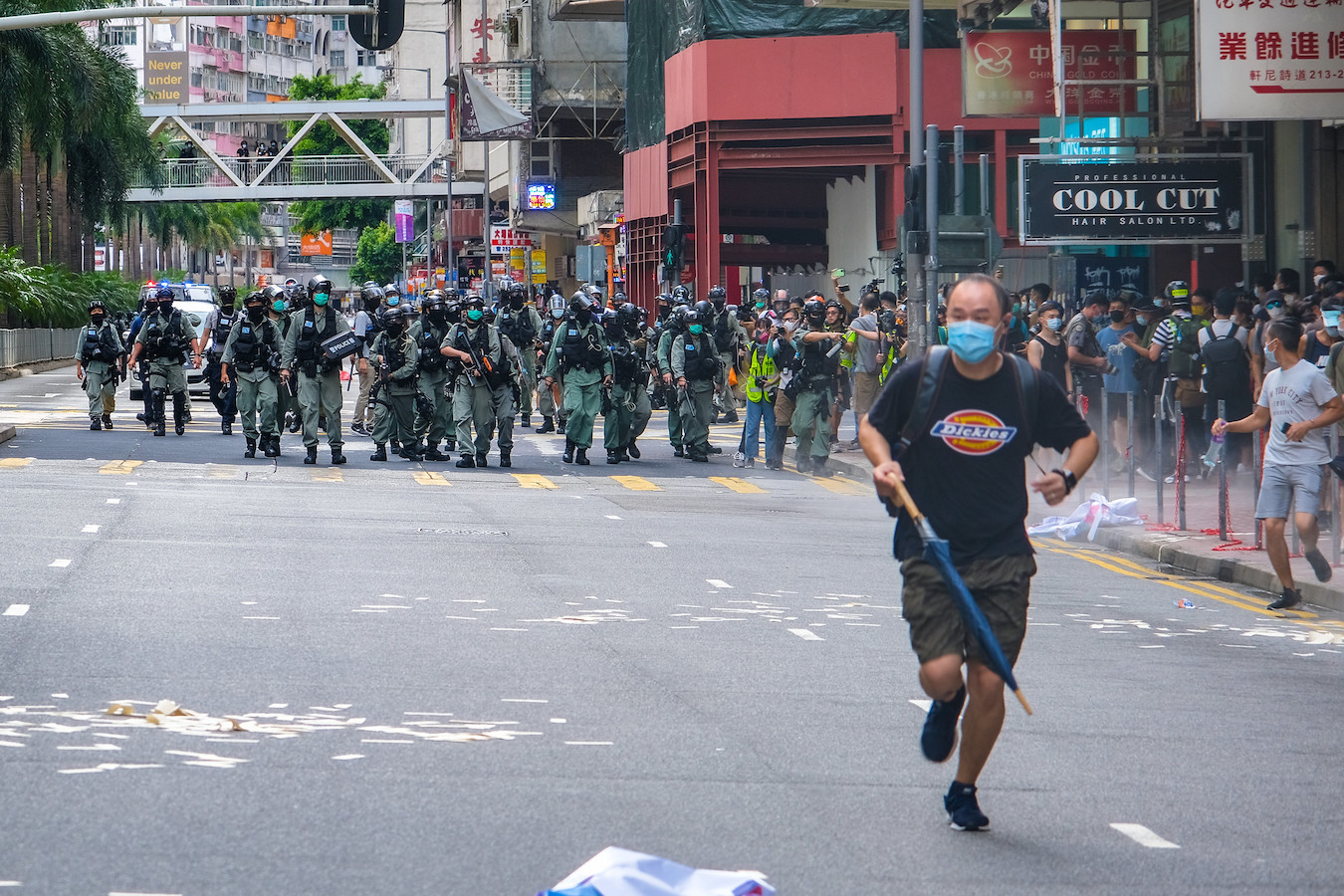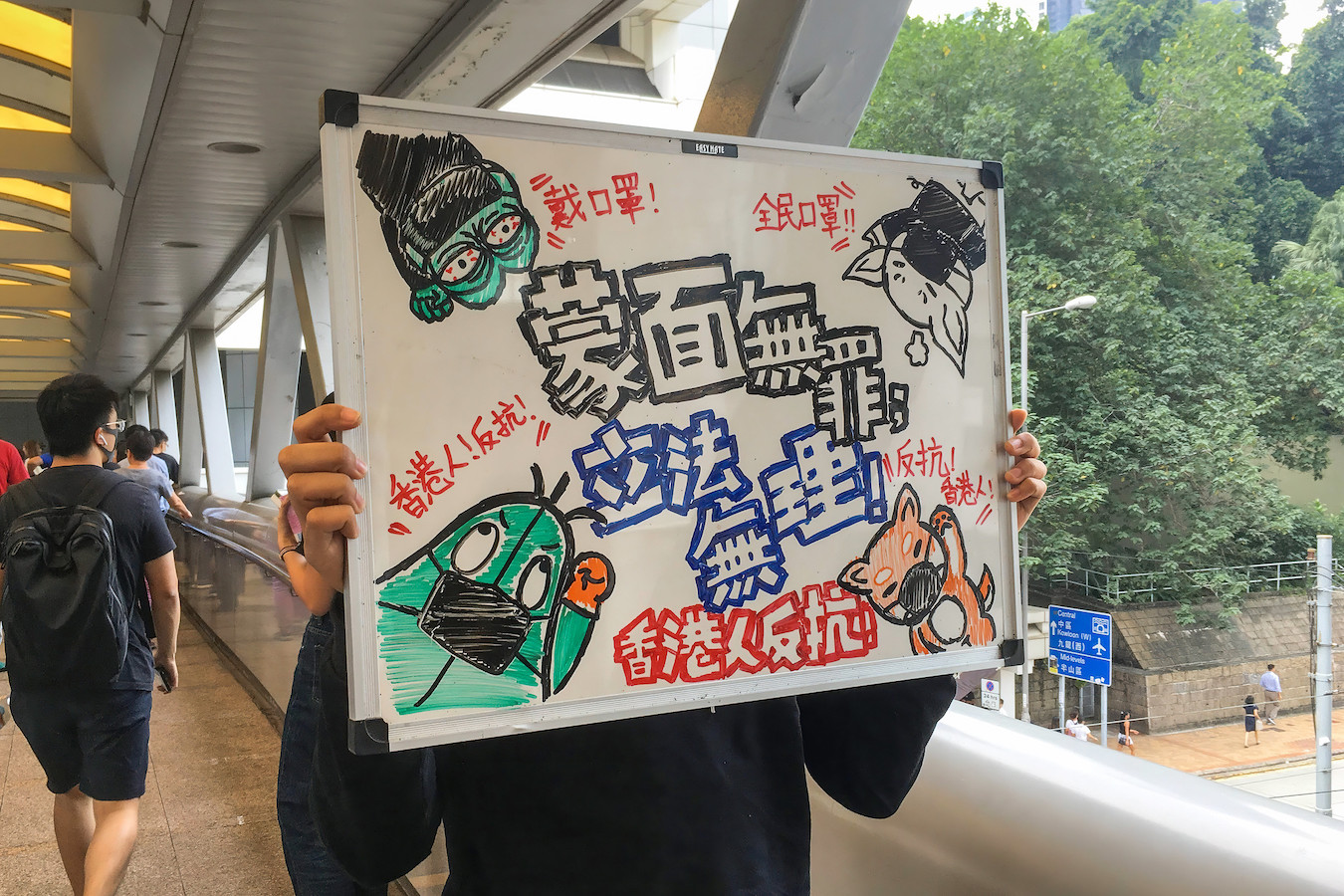by Brian Hioe
語言:
English
Photo Credit: Studio Incendo/Flickr/CC BY 2.0
THE LARGEST NATIONAL security trial to date in Hong Kong started on Monday, with 47 defendants standing trial over charges of “conspiracy to commit subversion”, with the act of subversion being directed at the state. The trial is over the defendants’ participation in or involvement in organizing primaries for pro-democracy candidates in Hong Kong Legislative Council (LegCo) elections.
Prosecutors have framed organizing in and participating in the primaries as a “massive and well-organized scheme to subvert the Hong Kong government.” In particular, prosecutors claim this on the basis of the claim that victorious candidates would act to block budgets and other legislative bills, to halt the operations of the Hong Kong LegCo, to try and oust the Chief Executive or force them to dissolve LegCo, as part of a “mutual destruction” strategy. Otherwise, defendants are framed as working with hostile foreign forces to undermine Hong Kong.
 Photo credit: Studio Incendo/Flickr/CC BY 2.0
Photo credit: Studio Incendo/Flickr/CC BY 2.0
Nevertheless, primaries for pro-democracy candidates were previously a commonplace feature of Hong Kong politics, so as to decide which candidates pro-democracy parties would field for office. Indeed, 610,000 voted in the primaries, which were at the time touted as historic in nature. The crackdown on the primary represents the further deterioration of electoral democracy in Hong Kong, with candidates previously blocked from running on the basis of perceived or real pro-Hong Kong independence views, or disqualified from office after being victorious. Now simply organizing a primary is framed as a violation of national security provisions.
The defendants that are on trial include many luminaries of pro-democracy activism, ranging from Joshua Wong, former journalist Gwyneth Ho, to former LegCo member “Long Hair” Leung Kwok-hung. Consequently, the defendants represent a wide age range, and hail from diverse backgrounds, reflecting the scope of those targeted. The 47 defendants were arrested in January 2021 after a series of police raids that began at dawn.
15 were granted bail but a number of the defendants have been refused bail, something else that was previously rare in Hong Kong’s legal system. As such, most of the defendants have already spent more than two years in jail, and those granted bail were generally not allowed to speak to the media. 16 of the defendants are expected to plead not guilty. On the other hand, 31 will plead guilty, and four defendants are expected to testify against the others. The trial will likely focus on the defendants that have pleaded not guilty, though those that pleaded guilty will only be sentenced after the trial.
The trial is expected to last three to four months. Three judges appointed by the government will oversee the trial, which will also take place without a jury, something else that violates long-standing legal precedents in Hong Kong. But, as the trial is still open and will be reported on, comments made by defendants or the prosecution could have ripple effects in Hong Kong society.
This could also occur with the eventual verdict of the trial several months from now, which may prompt outrage. The maximum penalty that defendants could face is life imprisonment.
Before the trial, an unusual line formed outside of the trial for publicly available seats. Reports suggest that many of those that lined up did not seem to know what the trial was about or what they were lining up for in spite of that some lined up overnight. It is unknown if this indicates that pro-Beijing forces will aim to stack the trial with sympathetic voices.
 Photo credit: Studio Incendo/Flickr/CC BY 2.0
Photo credit: Studio Incendo/Flickr/CC BY 2.0
Likewise, there was a heavy police presence outside of the trial. At least eight police vehicles were spotted nearby, as were dozens of officers, some of which had police dogs. Judges during the trial have called on defendants and their supporters to not disrupt the proceedings, emphasizing the “solemn” nature of the occasion.
Indeed, while free and fair elections by way of genuine universal suffrage have never existed in Hong Kong, the new system instituted in past years has made Hong Kong more undemocratic than ever. Under the new “patriot-only” elections, effectively only candidates from the pro-Beijing camp are allowed to run. Elections have become such that in the last round of elections, authorities warned that casting blank ballots as an act of protest was illegal and could be legally punished.
The results of the trial are to be seen, then. It is generally expected that the Hong Kong government will take a harsh line with the defendants, seeking to make an example out of them for Hong Kong society and the international world.

